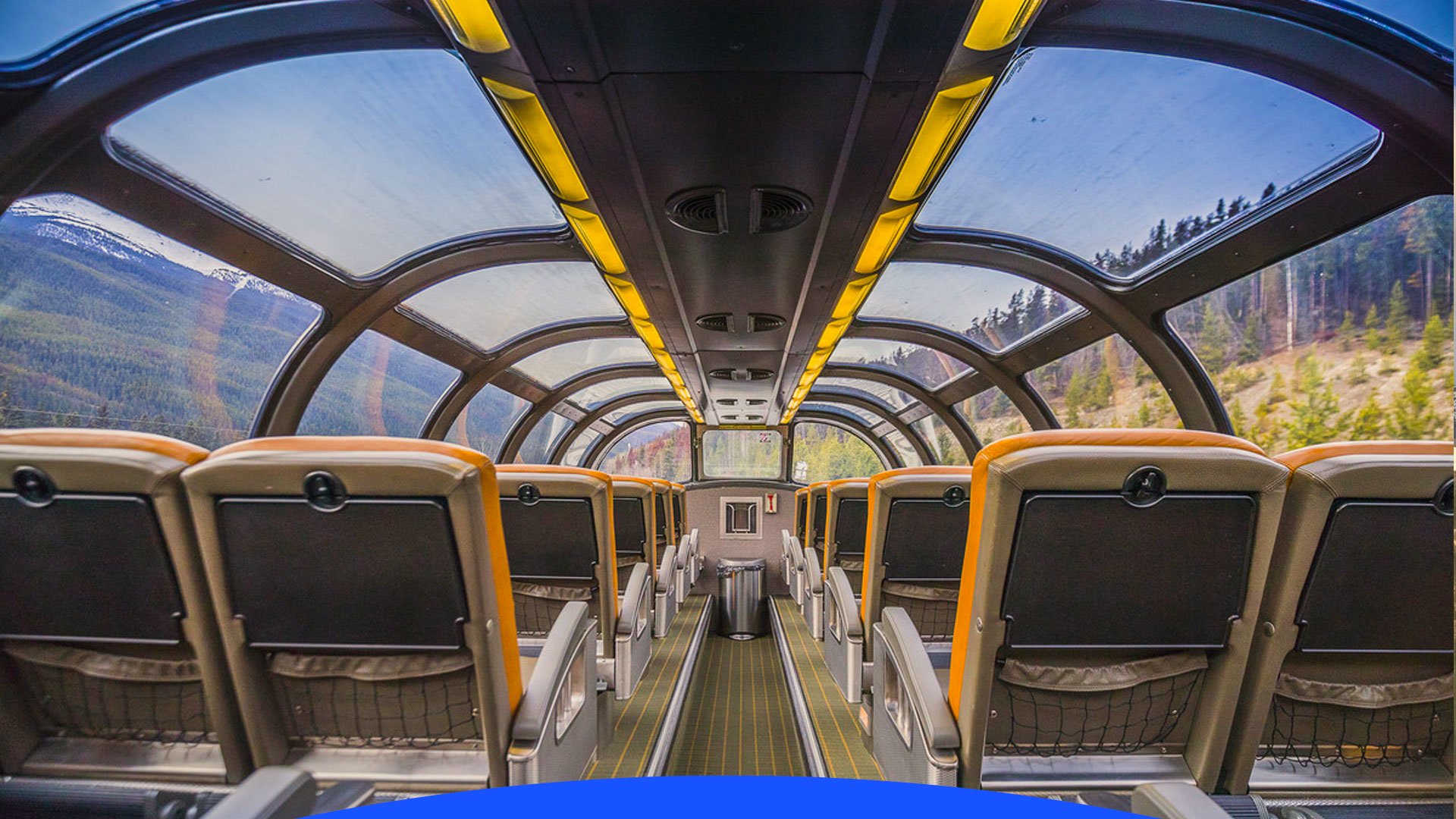Destination Canada. A long-term strategy beyond creating awareness and pushing conversion.
#BrandStrategy #MarketIntelligence #TradeActivation #PRandMedia #ConsumerMarketing #LivingStrategy
Challenges
Boost awareness of Canada as a travel destination, provide tools to move frequent international Brazilian travelers from consideration to conversion, and turn them into organic ambassadors for the destination.
Insights
In-depth analysis of consumer perceptions, visa process, air connectivity, pricing, key markets, sales channels, and B2B2C relationships with operators and agencies.
Strategies
Engaged diplomats with the realities of tourism, aligned operators tactically based on data-driven outcomes, involved tourism associations in the tactics, and identified key accounts and high-conversion markets. Deployed targeted end-consumer tactics—from content marketing and influencer strategies to PR actions tailored to specific media profiles. Chose Canadian Signature Experiences connected to the Brazilian Market, incorporated the experiences in products through DMC's and tour operator, as well as in the media projects.
Results
Changed consistently the offers in trips to Canada adding relevant experiences. Achieved exponential and consistent growth in visitor numbers and overnight stays over 9 years in the Brazilian market. Brazilian travelers ranked among the top two in average spending in Canada during this period. Generated over USD 5 million in earned media value in a single year.
VIA Rail Canada. Since 2013 transforming consistency in outstanding results
#BrandStrategy #MarketIntelligence #TradeActivation #PRandMedia #ConsumerMarketing #LivingStrategy
Challenges
In 2013, VIA Rail Canada set out to build its brand presence in Brazil—then ranked 13th among its international markets. The challenge was to increase awareness and drive sales with limited investment, while ensuring strong consistency in messaging. The goal was to position rail travel as an essential part of the Canadian experience for Brazilian travelers.
Insights
Train travel holds significant emotional appeal for Brazilians. Those already planning trips to Canada represented a high potential for conversion. The strategy focused on activating key accounts capable of quickly integrating rail experiences into their offerings. At the same time, efforts were made to lead strategic media campaigns, ensuring qualified Portuguese-language content was available online. Over time, this evolved into collaborations with qualified media projects that showcased the diverse train journeys VIA Rail offers.
Strategies
The approach concentrated on converting travelers already heading to Canada by positioning VIA Rail journeys as a seamless and enriching experience. Ongoing trade training was provided, priority accounts were supported, and consumer marketing campaigns utilized PR, content, and influencer strategies. Every initiative was carefully crafted to maximize impact within a lean budget.
Results
By 2015, Brazil had risen to 4th place among VIA Rail’s international markets, surpassing traditional players like France. The market remained strong and became one of the fastest to recover post-pandemic. Today, the train journey itself is a key factor in many consumers’ decisions to visit Canada. This case clearly demonstrates that smart strategy and consistent effort deliver real, measurable results—regardless of budget.
Global Tourisme – Reviving the role of the tourism trade in Canada and reentering the Brazilian market with a bold, innovative approach
#BrandStrategy #MarketIntelligence #TradeActivation #PRandMedia #ConsumerMarketing #LivingStrategy
Challenges
Reestablish Global Tourisme’s position in the Brazilian market and rebuild trust with local trade partners following the deep disruptions caused by the pandemic.
Insights
The post-pandemic tourism landscape saw a wave of new professionals entering the industry from unrelated sectors, coupled with structural changes across human resources in the travel chain. As a result, the traditional role of the trade was weakened. Yet, during the border closures and rebooking crises, it became clear: the expertise and structure offered by the trade were indispensable. While this recognition was temporary, it reignited the need to educate a new generation of professionals—and re-engage the experienced ones—on the strategic importance of distribution in tourism.
Strategies
Position Global Tourisme not only as a DMC but as a leading private connector for Canada in Portuguese and Spanish-speaking markets. The approach focused on building a collaborative ecosystem by bringing together airlines, tourism boards, and travel companies—of all sizes—under a unified vision. VBRA led the creation of a private-sector consortium designed to act swiftly and strategically, aligning communications, training, and commercial actions to reposition Canada in the Brazilian market.
Results
In just two months, Air Canada and VIA Rail Canada joined the initiative, reinforcing the importance of the Brazilian market and supporting Global Tourisme’s leadership. Fifteen tour operators quickly adhered to the consortium, forming the base of a new, agile model for market development. This initiative marked a turning point in how Canada is promoted in Brazil—driven by private-sector strategy, collaboration, and long-term vision. VBRA leads strategies, all communications, trade initiatives, and tactical execution for the project.
The Brazilian Association of Travel Agencies Strengthening the Brazilian Tourism Ecosystem — Through the Pandemic and Beyond
#BrandStrategy #MarketIntelligence #TradeActivation #PRandMedia #ConsumerMarketing #LivingStrategy
Challenges
During the COVID-19 pandemic, the Brazilian Association of Travel Agencies (ABAV Nacional) faced one of the most critical moments in the history of the tourism sector. The challenge was twofold: to preserve the operational structure of agencies across the country and to maintain public trust while avoiding a wave of cancellations. In the midst of economic uncertainty and industry paralysis, ABAV needed to act swiftly to protect both the sector and the professionals who sustain it. For the first time in its 68-year history, ABAV was under the leadership of a woman—adding a new and powerful voice to the conversation.
Insights
Travel holds deep emotional value for Brazilians. But the crisis demanded a shift in mindset—from panic and cancellation to empathy and postponement. Encouraging travelers to reschedule instead of canceling became a critical strategy to safeguard the ecosystem of agencies and services.
Strategies
VBRA played a strategic and operational role in supporting ABAV Nacional through one of the most complex periods in tourism:
Crisis Management & Communication Leadership
Structured ABAV’s messaging during multiple sensitive periods, including the pandemic. Positioned the association as a trusted authority across political, media, and industry spaces. Provided ongoing communication support to the president, ensuring consistent and strategic visibility.
Spokesperson Empowerment & Media Training
Guided ABAV’s national president in media positioning, and conducted training sessions with regional ABAV leaders. Developed a crisis response playbook with key messages to ensure unified communication nationwide.
“Adia” Campaign (Postpone)
Co-created and implemented the national Adia campaign, encouraging travelers to postpone—not cancel—their plans. Offered pro bono by VBRA, the initiative unified the tourism trade and became a benchmark for crisis response in the industry.
ESG Strategy Development
Led the design and implementation of ABAV’s ESG program, aligning the institution with sustainable, socially responsible, and ethical governance principles. This repositioning elevated ABAV’s relevance beyond economic advocacy.
Digital Modernization
Redefined and redesigned ABAV’s website to create a more functional, accessible, and informative platform for members and travelers alike.
Travel Agent Valorization
Created national campaigns to highlight and elevate the role of travel agents—reinforcing their value to both the public and the tourism chain.
Results
The Adia campaign became a reference for crisis management in tourism—mobilizing media, influencers, consumers, and the trade around a shared message of resilience. VBRA’s strategic communication reinforced ABAV’s leadership, credibility, and long-term vision. To structure the ESG initiative marked a turning point in how the association approaches sustainability and institutional purpose. This case exemplifies ABAV Nacional’s evolution from a representative body to a proactive agent of innovation and recovery—and highlights VBRA’s ability to lead high-stakes communications and strategic transformations with lasting impact.
ABAV Expo & ABAV Collab - When events become tributes to resilience
#BrandStrategy #MarketIntelligence #TradeActivation #PRandMedia #ConsumerMarketing #LivingStrategy
Challenges
In 2020, as the pandemic disrupted the tourism industry, the Brazilian Association of Travel Agencies (ABAV) faced a significant challenge: adapting to the new reality and maintaining its position as a key player in the sector. The main challenge was twofold: ensuring the continued relevance of the in-person ABAV Expo while transitioning successfully to the virtual format with ABAV Collab. The goal was to drive engagement, maintain participation, and reinforce ABAV’s leadership in tourism despite the challenges posed by the pandemic. VBRA was tasked with not only bringing the public to the event but also helping educate professionals on navigating the virtual platform. In 2021, when ABAV Expo returned as the first major tourism event in Brazil to be held in-person, VBRA was again called upon to manage the entire communications strategy for the event in Fortaleza.
Insights
ABAV Expo had long been a significant event in Latin America's tourism calendar, attracting a diverse audience of professionals and exhibitors. The pivot to ABAV Collab, the virtual event, provided a critical opportunity to maintain industry connections despite physical restrictions. It became a platform to continue promoting collaboration and engagement in the tourism sector. When the Brazilian government allowed ABAV Expo to return in 2021, albeit with strict health protocols, VBRA was called upon to communicate these new guidelines and ensure the public was aware of safety while maintaining a seamless experience. This moment marked the industry's return to face-to-face events, and VBRA played a crucial role in structuring the communications on guiding and informing both exhibitors and attendees about the new norms.
Strategies
VBRA developed and executed communication strategies tailored to both the virtual and in-person formats of the events:
ABAV Collab (2020)
A digital-first strategy was implemented, incorporating social media, trade media, paid campaigns in different platforms optimizing the limited budget, focusing on the engagement and maximizing virtual participation. VBRA focused on ensuring that tourism professionals understood the virtual platform, maintaining the integrity of the event’s networking and educational objectives.
ABAV Expo (2021-2023)
For the in-person return, VBRA coordinated the event's communications & marketing campaigns, ensuring that the public understood the safety protocols and new norms in place for the 2021 edition, while also fostering excitement and engagement. As the event grew over the following years, these strategies evolved to keep ABAV Expo at the forefront of Latin American tourism.
Results
ABAV Collab (2020)
Despite the challenges, ABAV Collab attracted 25,000 virtual attendees, successfully engaging the tourism community and offering valuable content during a time of crisis.
ABAV Expo (2021-2023)
After the virtual success of ABAV Collab, ABAV Expo made a triumphant return in 2021 with the Fortaleza edition. Although limited to 13,000 visitors, the event marked the industry’s first major step back to face-to-face interactions while adhering to health regulations. In 2022, the event in Recife celebrated the full return of large-scale events, attracting over 25,000 attendees. The 2023 edition in Rio de Janeiro shattered records, drawing more than 42,000 visitors. VBRA’s strategic communication efforts helped ABAV Expo retain its position as one of the largest and most influential tourism trade events in Latin America.
VBRA’s collaboration with ABAV showcases the power of strategic communication and branding in times of crisis. By successfully transitioning ABAV Expo to a virtual format and then managing its triumphant return to in-person events, VBRA played a pivotal role in ensuring the continued relevance and success of the event. This collaboration not only helped ABAV navigate the challenges of the pandemic but also solidified its leadership in the tourism sector, reinforcing its position as a driving force for innovation and growth in Latin America’s tourism industry.





